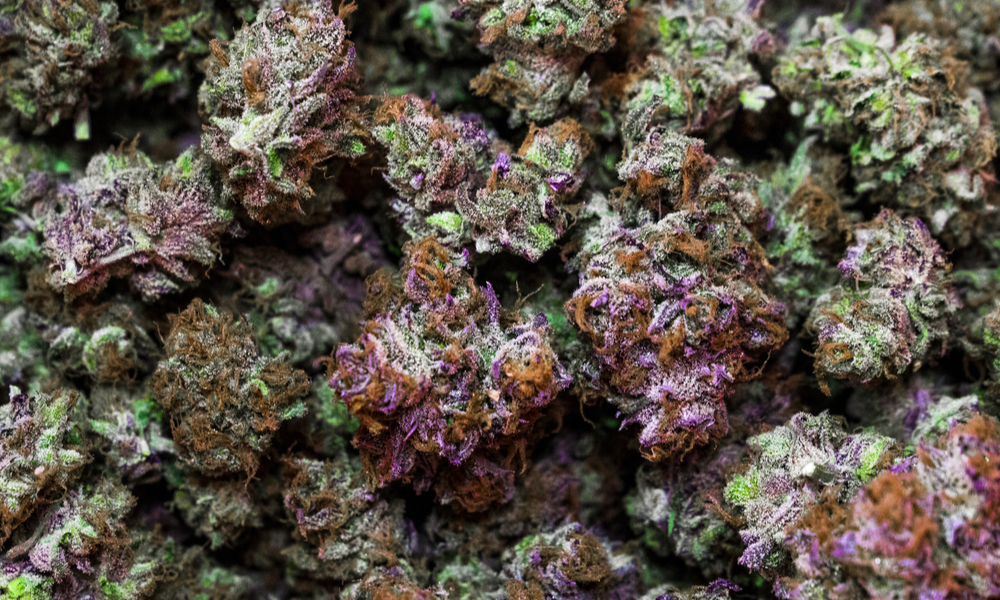Tetrahydrocannabivarin (THCV) is a cannabinoid compound discovered in cannabis and hemp plants. It's chemically comparable to tetrahydrocannabinol (THC) however with some essential differences. Here's whatever you require to understand about THCV consisting of the threats, advantages, differences, and similarities with other types of THC and more. What Is THCV? THCV is a less common cannabinoid found in some stress of cannabis, specifically African sativa.
 What is THCV and what are the benefits of this cannabinoid? Leafly
What is THCV and what are the benefits of this cannabinoid? Leafly
 THCV: Everything You Need to Know CannaMD
THCV: Everything You Need to Know CannaMD
 Tetrahydrocannabivarin: What is THCV & It's Effects - Dr. Green Relief
Tetrahydrocannabivarin: What is THCV & It's Effects - Dr. Green Relief
THCV has a 3-carbon side chain more info instead of THC's 5-carbon side chain. This difference is subtle, however it has a visible effect on the result profile. THCV is somewhat psychedelic but just about and about. What Does THCV Feel Like? THCV has a strong energy-boosting element to it, that makes it particularly popular amongst students and professional athletes.
In the United States, THCV regulation is nuanced. THCV is not an Arrange I Drug, but marijuana extracts are making it somewhat unclear what the federal position is on THCV. The 2018 Farm Expense specifies that hemp plants and all derivatives of the plants are legal on a federal level, so lots of business abide by this law and still provide THCV to consumers by only extracting the compound from hemp plants.
If THCV is thought about a THC analog, it might be controlled in the future by the very same rules as THC under the Federal Analog Act. This act mentions that any substance that shares a similar molecular profile as a known forbidden substance it's consisted of in the very same drug Arrange category.
What Are the Effects of THCV? Proponents of THCV report that it produces an intense burst of energy and makes them feel blissful without the mental cloudiness triggered by THC. The results are extremely moderate compared to THC. The impacts are practically solely cognitive yet somehow have extremely little influence on headspace.
2. THCV & Appetite Some THCV users claim that it curbs their cravings. This is a typical effect of other focus-enhancing substances. It's as though THCV removes the distraction of other bodily procedures (like appetite) in order to maintain resources and attention to cognitive jobs instead. How Does THCV Work? Cannabinoids produce biological impacts in the body by communicating with endocannabinoid receptors.
CB1 receptors lie in the nervous system and connect with neurotransmitters in the brain to produce mind-altering results. Interaction with CB1 sites is what provides some cannabinoids like THC their psychoactivity. THCV is a bit difficult to comprehend due to the fact that it's mainly a CB1 antagonist, suggesting it has the opposite result as THC.
While researchers are still looking for to understand this process, it appears THCV has the ability to obstruct the impacts of CB1 in low doses and stimulate them in high dosages. CB2 receptors are discovered mainly in the immune system. THCV is a partial agonist of CB2, however the impacts of this partial activity aren't well-known, and it relatively has no discernible influence on THCV users' experience.
As mentioned in the previous section, THCV is a CB1 villain in low dosages which is the precise opposite effect of delta 8 and delta 9 THC. This might imply that THCV combats a few of the psychoactive results what strains of cannabis sativa have the highest thcv of THC. This effect could explain why people who utilize THCV feel so clear-headed particularly compared to the infamous "fogginess" caused by delta 9 THC.